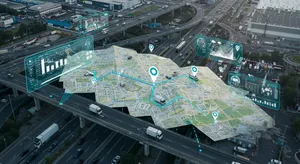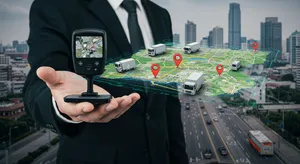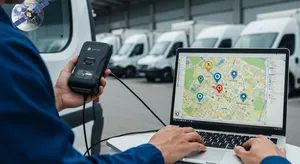GPS Tracking System Operation
- 24 GPS satellites orbiting Earth at 12,550 miles altitude
- Trilateration process using signals from 4+ satellites for accurate positioning
- GPS receivers calculating position within 3-5 meters accuracy
- Real-time data transmission via cellular networks to monitoring centers
- Continuous position updates every 10-60 seconds depending on configuration
- Backup systems using GLONASS and Galileo satellites for enhanced reliability
- Indoor positioning assistance through WiFi and cellular tower triangulation
- Historical tracking data storage for route analysis and reporting









